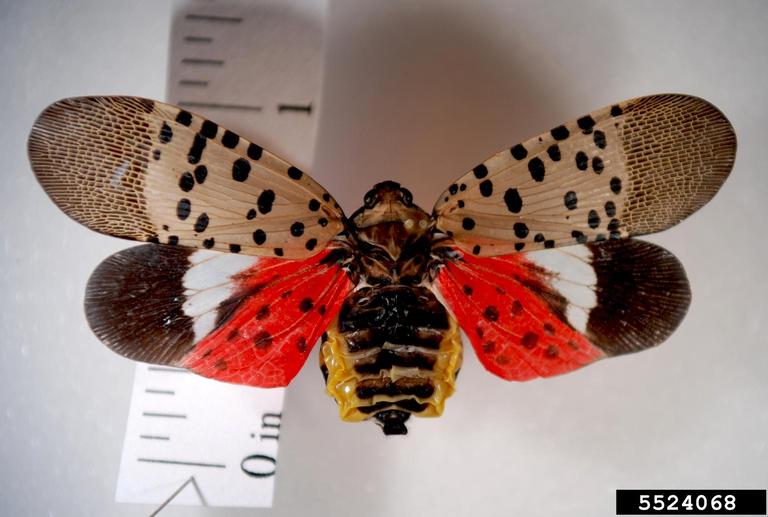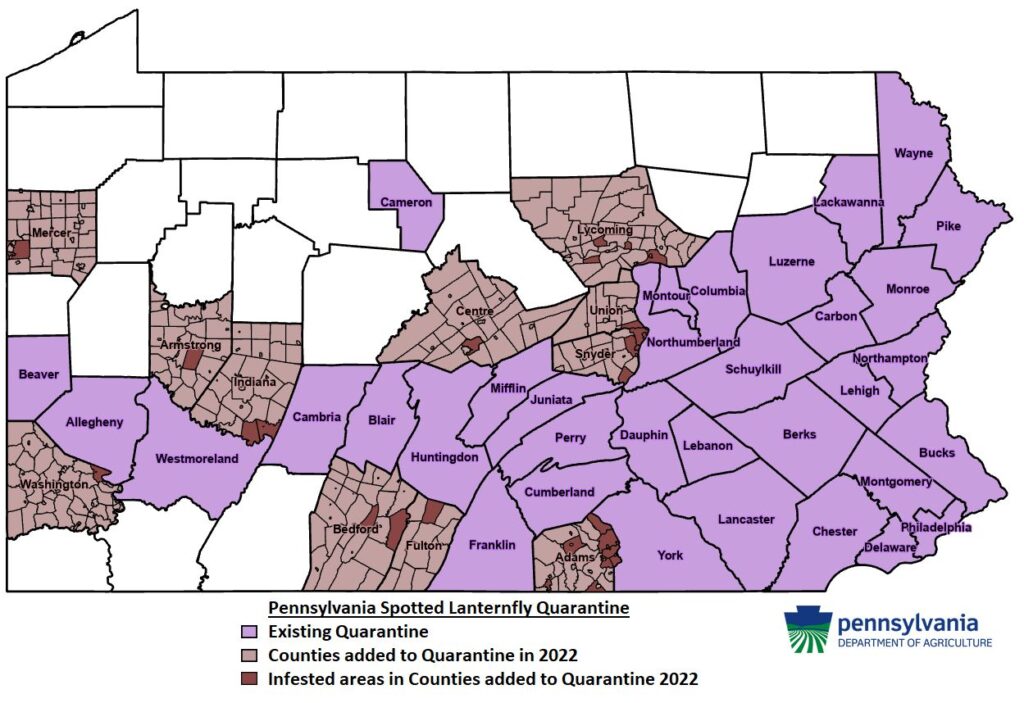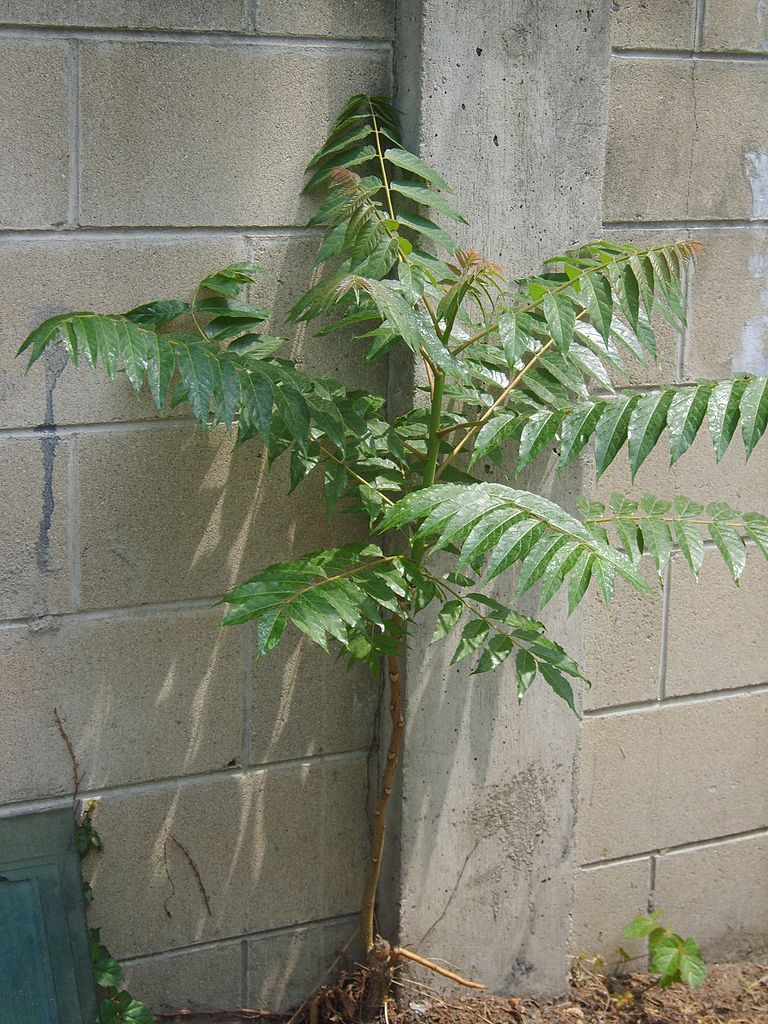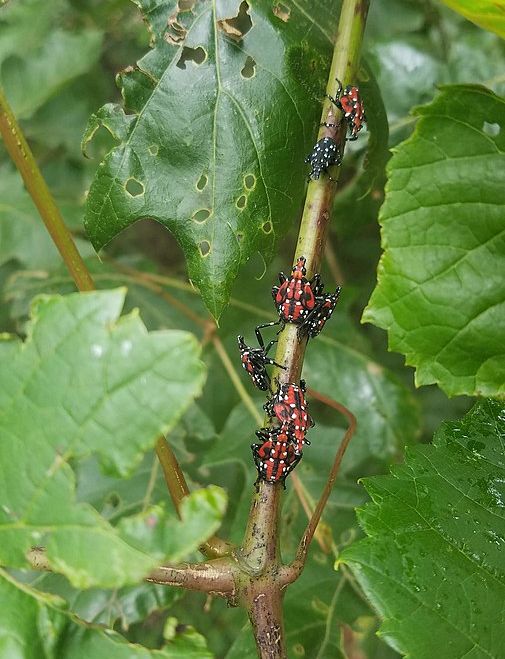
15 June 2022
When the invasive spotted lanternfly (Lycorma delicatula) was first discovered near Allentown, Pennsylvania in 2014, biologists and farmers worried that it would destroy agriculture and kill native trees. Now that the insect has been in North America for seven years and shown what it can do, scientists have their revised their advice about this bug.
Back in 2014 we had no experience with spotted lanternfly so we looked to another place where it is invasive — South Korea — and applied their experience to our landscape. The forecast was bad, the prognosis dire.
Fortunately the bug didn’t do what we thought it would. The only tree it kills is its host tree, tree-of-heaven (Ailanthus altissima), one of the worst invasive plants in North America.
Spotted lanternflies can stress native trees, especially young ones, but they don’t kill them.
As for agriculture spotted lanternfly nymphs kill grapevines, below, but not other fruits and vegetables. This spares most of Pennsylvania’s farmers.
The Allegheny Front reported in February that the widest economic impact is felt by businesses that must inspect everything before they transport goods — and potential lanternflies — from quarantined to non-infected locations.
The Pennsylvania Department of Agriculture is still tracking the bug’s advance so report it in counties where it’s new. Here’s the spotted lanternfly quarantine as of March 2022.

Like other invaders, spotted lanternflies surge in an area, then ebb when they exhaust their food supply. During a surge they are worse than annoying.
Overall, the spotted lanternfly is not as bad as we feared.
Learn more at The Allegheny Front: Penn State researchers aim to debunk myths surrounding spotted lanternfly.
(photos from bugwood and Wikimedia Commons; click on the captions to see the originals)


Here in Westmoreland County, I still haven’t seen any. Luckily